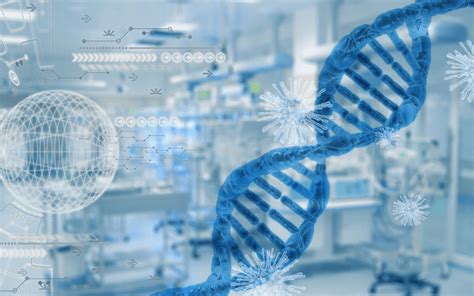Microbiologists are in high demand due to their expertise in the study of microorganisms, including bacteria, viruses, and fungi. Their work plays a crucial role in various fields, including healthcare, agriculture, and environmental science. As a result, microbiologists enjoy competitive salaries, with earning potential varying based on experience, education, and industry.

Salary Ranges for Microbiologists
According to the U.S. Bureau of Labor Statistics (BLS), the median annual salary for microbiologists was $71,630 in May 2021. The lowest 10% earned less than $47,820, while the highest 10% earned more than $117,810.
Table 1: Salary Percentiles for Microbiologists
| Percentile | Salary Range |
|---|---|
| 10th | $47,820 or less |
| 25th | $58,630 to $71,630 |
| 50th (Median) | $71,630 |
| 75th | $87,220 to $117,810 |
| 90th | $117,810 or more |
Factors Affecting Salary
Several factors influence a microbiologist’s salary, including:
- Education: Microbiologists with advanced degrees, such as a master’s or doctorate, typically earn more than those with only a bachelor’s degree.
- Experience: Years of experience in the field can significantly increase salary.
- Industry: Microbiologists working in certain industries, such as healthcare or biotechnology, may earn higher salaries than those in other fields.
- Location: Geographic location can also impact salary, with microbiologists in metropolitan areas often earning more than those in rural areas.
Table 2: Salary by Industry
| Industry | Median Annual Salary |
|---|---|
| Healthcare | $75,200 |
| Biotechnology | $82,370 |
| Agriculture | $68,000 |
| Environmental Science | $70,500 |
Motivations for Becoming a Microbiologist
Individuals are drawn to the field of microbiology for various reasons, including:
- Intellectual Curiosity: Microbiologists are driven by a thirst for knowledge and a desire to unravel the mysteries of the microbial world.
- Passion for Science: They possess a strong passion for science and enjoy conducting research and analyzing data.
- Healthcare Impact: Many microbiologists are motivated by the opportunity to contribute to human health and prevent the spread of infectious diseases.
- Environmental Stewardship: Some microbiologists are passionate about protecting the environment and using microbial processes to improve environmental sustainability.
Steps to Become a Microbiologist
Becoming a certified microbiologist typically involves the following steps:
1. Obtain a Bachelor’s Degree: The first step is to earn a bachelor’s degree in microbiology, biology, or a related field.
2. Gain Experience: Consider internships, research opportunities, or laboratory work to gain practical experience.
3. Pursue Advanced Education (Optional): For higher-level positions, a master’s degree or doctorate in microbiology may be necessary.
4. Obtain Certification: Voluntary certification through organizations like the American Society for Microbiology (ASM) can enhance credibility and career advancement.
Frequently Asked Questions (FAQs)
1. Do microbiologists need to work overtime?
Yes, microbiologists may need to work overtime to complete research projects, meet deadlines, or respond to emergencies.
2. Are microbiologists in demand?
Yes, the demand for microbiologists is increasing due to advances in healthcare, biotechnology, and environmental science.
3. Can microbiologists work in different countries?
Yes, microbiologists can work in various countries, especially if they have international certifications or experience.
4. What are the career advancement opportunities for microbiologists?
Microbiologists can advance to leadership positions, such as laboratory manager, research director, or university professor.
5. What are the challenges faced by microbiologists?
Microbiologists face challenges such as funding constraints, competitive grant applications, and the need to stay up-to-date with rapidly evolving scientific knowledge.
6. What skills are essential for microbiologists?
Analytical skills, problem-solving abilities, strong communication skills, and knowledge of scientific methods are essential.
Table 3: Essential Skills for Microbiologists
| Skill | Description |
|---|---|
| Analytical Skills | Ability to analyze data and draw conclusions |
| Problem-Solving Abilities | Capacity to identify and resolve scientific challenges |
| Communication Skills | Proficiency in written and verbal communication for presentations and publications |
| Scientific Methods | Understanding of experimental design, data collection, and hypothesis testing |
Conclusion
Microbiologists play a vital role in society by studying microorganisms and their impact on human health, the environment, and agriculture. Their work is essential for advancements in medicine, biotechnology, and environmental protection. As a result, they earn competitive salaries commensurate with their education, experience, and industry. With the increasing demand for microbiologists, the job outlook is promising for those seeking a rewarding career in this field.
